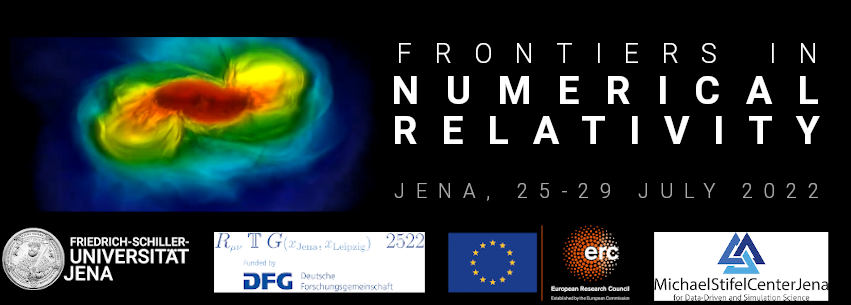Speaker
Description
Numerical relativity plays a key role in the study of the dynamical and strong-field gravity regime of black hole and neutron star binary systems. The accuracy required nowadays for gravitational waves modeling and to investigate the outcome of compact binaries involving neutron stars and the matter and light emission can be obtained only through high-resolution simulations. Such simulations can be very costly and thus high-performance and scalable codes, capable of efficiently making use of the modern massively-parallel architectures available nowadays, are needed. It has become increasingly important to write codes that are portable, i.e. able to run on several architectures while keeping a high parallel efficicency. A possibility to achieve this goal is offered by the Kokkos C++ library, which allows one to easily write readable codes that can be compiled on virtually any architecture, included GPU nodes. We present the first results of single puncture evolutions with a new version of the oct-tree based code GR-Athena++, rewritten with the Kokkos paradigm. We compare CPUs and GPUs performance and we discuss the feasibility of binary black hole runs on GPUs, which are challenging due to the small memory available on GPUs. We achieve a speed-up of $\sim 50$ comparing the new Kokkos-based code run on a GPU with respect to GR-Athena++ and we argue that it is possible to run a medium/high resolution binary black hole runs using $\sim 4$ GPUs. These results demonstrate that a Kokkos version of GR-Athena++ can in principle be used to perform binary black hole evolution with a significant gain in speed, providing a valid option for exa-scale numerical relativity on the newest architectures.

